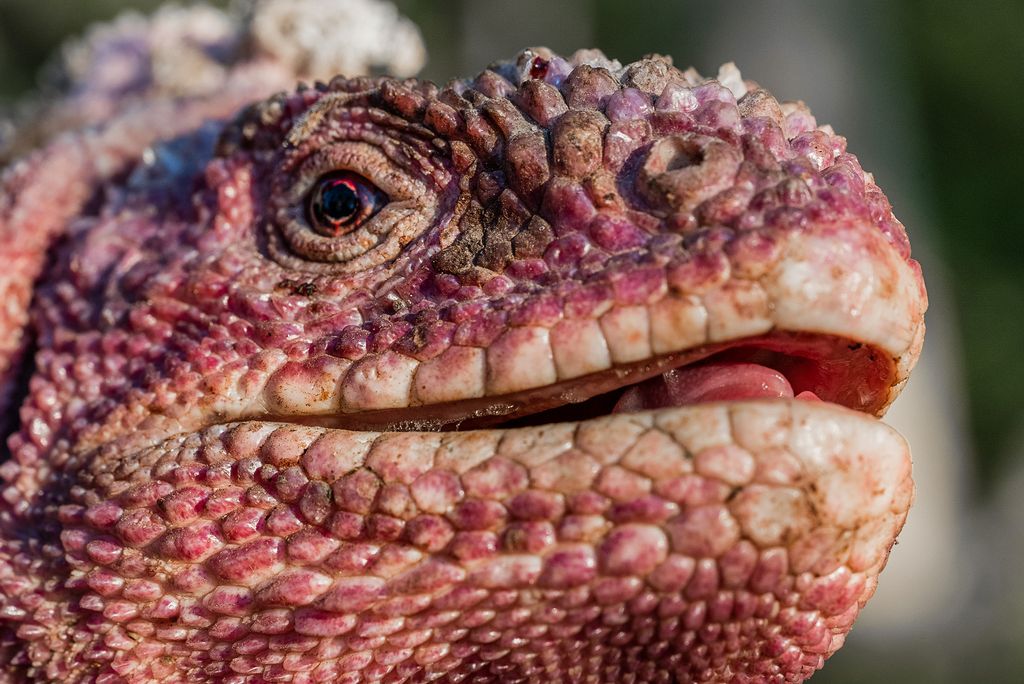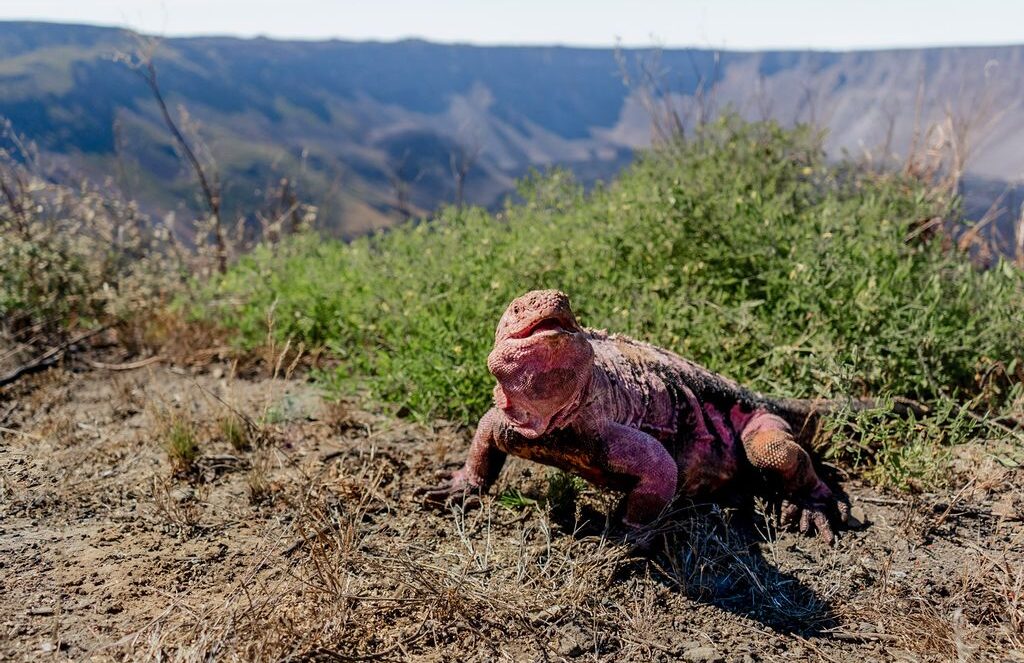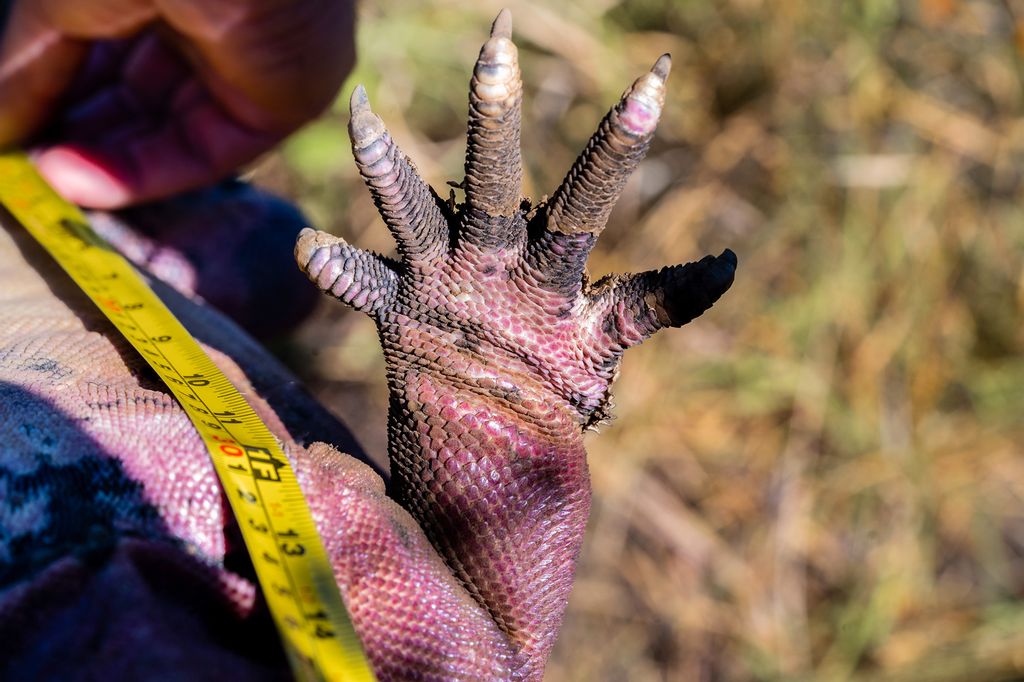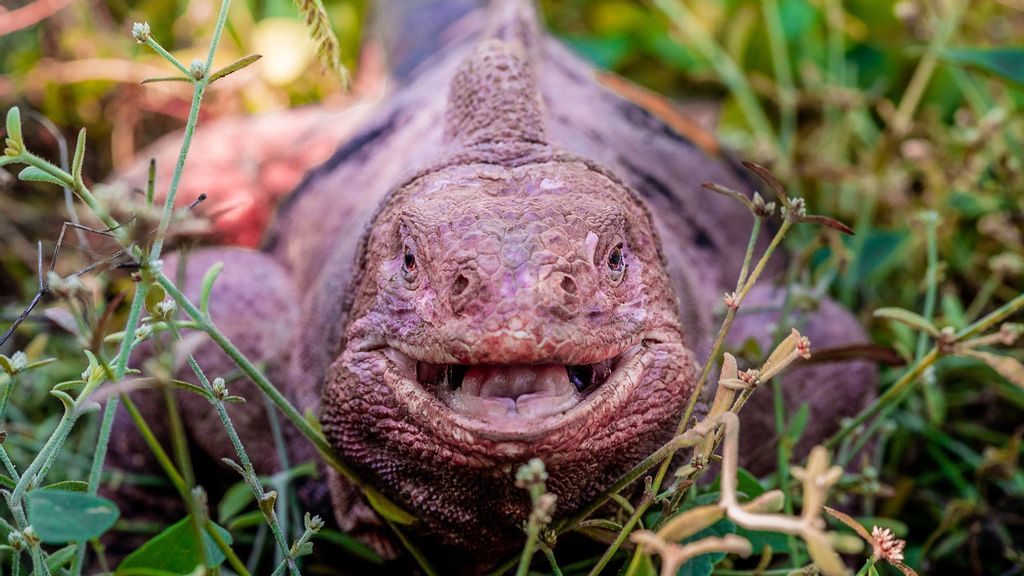Rodents and feral cats introduced on remote Isabela Island in the Galapagos are to blame for the near-extinction of the rare pink land iguanas, scientists say.
Only 211 of these iguanas remain, according to scientists monitoring the population. The pink land iguana is found only on the volcanic island.
And, “alarmingly,” scientists said, no juveniles were found. Many of the young hatchlings either eaten by rats or feral cats, which also eat the eggs before they hatch. The last juvenile was sighted in 2014, scientists and park rangers said in a report published in the Galapagos Conservancy newsletter.
“Preliminary results from the first-ever comprehensive census of the pink land iguana reveal that the species is in dire need of conservation action,” the report states.
Video shows a rat licking its claws outside the burrow of a pink land iguana.

The Galapagos Conservancy and the Galápagos National Park Directorate (GNPD) sent 30 scientists to Isabela Island, the largest island — 1,771 square miles — in the archipelago, for a headcount of pink land iguanas on the rim of Wolf Volcano.
The research team used a mark-recapture method during a 10-day expedition to get an accurate count of the pink land iguanas (Conolophus marthae). The reptiles are listed as critically endangered on the International Union for Conservation of Nature’s Red List of Threatened Species.
Prior to the 17th century when European traders and pirate ships introduced rats and cats to the Galapagos, the iguanas’ only natural predator was the Galapagos hawk. They are also threatened by volcanic eruptions.

Many of the native species on the island, including the pink iguana, evolved in habitats where underground nests were not originally threatened by rodents or cats.
Danny Rueda, Galapagos Conservancy Director of Conservation Washington Tapia, said: “Saving the Pink Land Iguana has become an urgent conservation priority”
He added: “Given the presence of introduced predators and the lack of juveniles, as well as the limited geographic range of the species, the Pink Land Iguana is at risk of imminent extinction.”

The results of the expedition have promoted the GNPD to develop a conservation plan for the Pink Land Iguana.
The GNPD is planning to run several workshops in the near future where a conservation plan will be developed and implemented as soon as possible.
The International Union for Conservation of Nature (IUCN) considers the Pink Land Iguana to be Critically Endangered meaning it is highly likely to go extinct in the near future.
Edited by Judith Isacoff and Fern Siegel
The post VIDEO: How Cats And Rats Are Driving The World’s Rarest Reptiles To Extinction appeared first on Zenger News.

